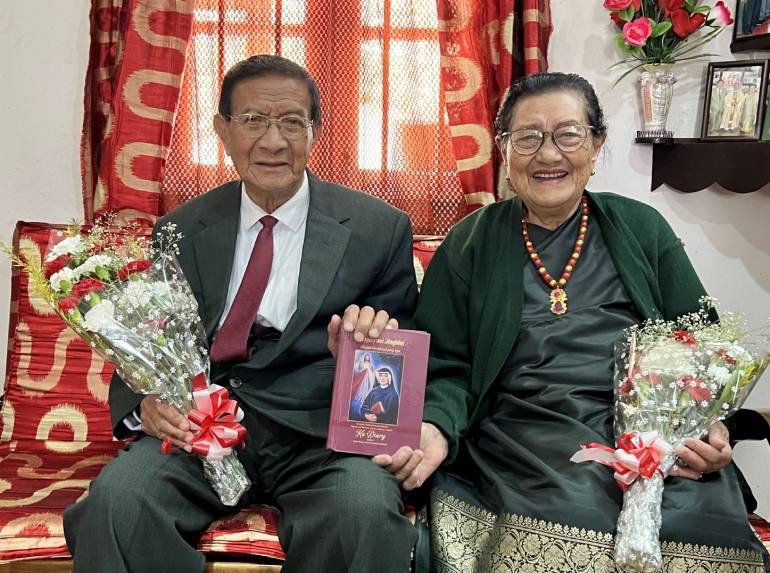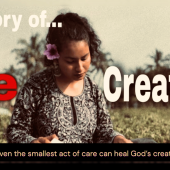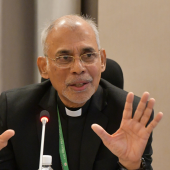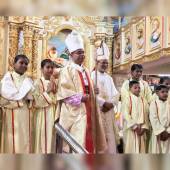Catholic couple translates diary of St. Faustina into Khasi in Meghalaya

A Catholic couple in northeastern India has translated the diary of Saint Maria Faustina Kowalska, an apostle of Divine Mercy, into an indigenous language.
A book entitled “Ka Diary jong ka Sistar Maria Faustina Kowalska Bakhuid” was translated to Khasi (a local language in Meghalaya) by Dr. Daniel Lyngdoh Nongpyiur and Margaret Melin Marbañiang.
The event took place at Christ King Church, Madanriting, Meghalaya state in northeastern India on February 27.
Father Glorious Syiemlieh, the parish priest of Nongthymmai, in the presence of Dasakhiatbha Lamare, Minister of Transport and Public Works Department, released the book.
It is a translation of the book “Diary: Divine Mercy in my soul” authored by Saint Maria Faustina Kowalska, a young nun living in Cracow, Poland in the 1930s. It ignited the Divine Mercy movement in the Church.
The book is based on the contents of her diary from 1925 until she died in 1938. The handwritten pages of Faustina’s diary turned into about 700 printed pages, published as the book in 1981.
The Diary chronicles the experiences of Faustina, who received a special call shortly before the outbreak of World War II. Jesus appeared to her and instructed her to spread the message of His Divine Mercy to all amid the distress and worldliness of the contemporary time.
The message of the Divine Mercy is that God loves all. He wants to recognize that His mercy is greater than human beings’ sins so that all will call upon Him with trust and receive His mercy.
The Khasi version of the book contains 805 pages packed with the narration of the encounter of Faustina with Jesus, who is the face of Divine Mercy.
“It took them two years to complete the translation,” said Salesian Father Daniel Dabitlang M Cajee, the grandson of the authors.
Radio Veritas Asia (RVA), a media platform of the Catholic Church, aims to share Christ. RVA started in 1969 as a continental Catholic radio station to serve Asian countries in their respective local language, thus earning the tag “the Voice of Asian Christianity.” Responding to the emerging context, RVA embraced media platforms to connect with the global Asian audience via its 21 language websites and various social media platforms.
















- Reply
Permalink